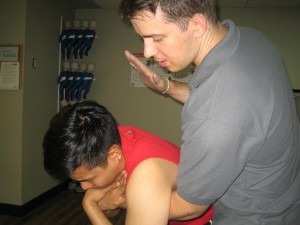Overview Of Whooping Cough
- The disease is extremely contagious and most severe in babies below the age of 12 months.
- It’s very uncommon for kids who have been inoculated against whooping cough to get the illness – and if they do, it’s generally not as severe.
- The condition generally begins with an insistent dry and exasperating cough that develops to intense attacks of coughing. These are followed by a distinct ‘whooping’ sound, which is how the illness gets its name.
- Other symptoms consist of a runny nose, elevated temperature and nausea after coughing.
- The gestation period for whooping cough is approximately between 6-21 days with its contagious period lasting from the initial signs of the infection until about six weeks after coughing begins.
Symptoms of Whooping Cough?

Whooping cough tends to progress in phases, with minor symptoms occurring first, charted by a period of more serious symptoms.
Initial Symptoms
The initial symptoms of whooping cough are often comparable to those of a common cold and might consist of:
- Congested nose
- Sneezing
- Runny eyes
- Parched, exasperating cough
- Painful throat
- Marginally high temperature
- Feeling ill.
Infants and Kids
- Babies younger than 6 months might not make the ‘whoop’ sound after coughing, but they might begin gagging or breathless, and might briefly stop breathing.
- Though very unusual, it’s likely for whooping cough to cause abrupt unanticipated death in babies.
- Young youngsters might also seem to choke or turn blue in the face when they have an attack of coughing. Breathing will rapidly start again.
Risk Factors
Whooping cough is thought to be on the incline for two key reasons. The whooping cough inoculation you receive as a child ultimately wears off. This leaves most teens and adults prone to the infection during an outbreak.
In addition, kids aren’t completely resistant to whooping cough until they’ve had at least three inoculations, leaving those 6 months and younger at a larger risk of getting the infection.
Treating Infants and Young Kids
- Babies are affected most harshly by whooping cough, and are most in danger of increasing difficulties.
- For this purpose, babies below 12 months who get whooping cough will often require treatment at a clinic or hospital.
- Your kid might need to be prescribed antibiotics.
Treatments and Drugs
Infants are usually hospitalized for treatment because whooping cough is more risky for that age group. If your child can’t keep down fluids or food, intravenous fluids might be required. Your child will also be secluded from others to avoid the infection from spreading.
Treatment for older kids and adults generally can be treated at home.
Medications
Antibiotics eradicate the bacteria causing whooping cough and help to speed up the recovery. Family members might be given precautionary antibiotics.
Regrettably, not much is obtainable to alleviate the cough. Over-the-counter cough medications, for example, have little results when it comes to whooping cough and are discouraged.
Related Video On Whooping Cough
https://www.youtube.com/watch?v=84JvqZbnwiQ
